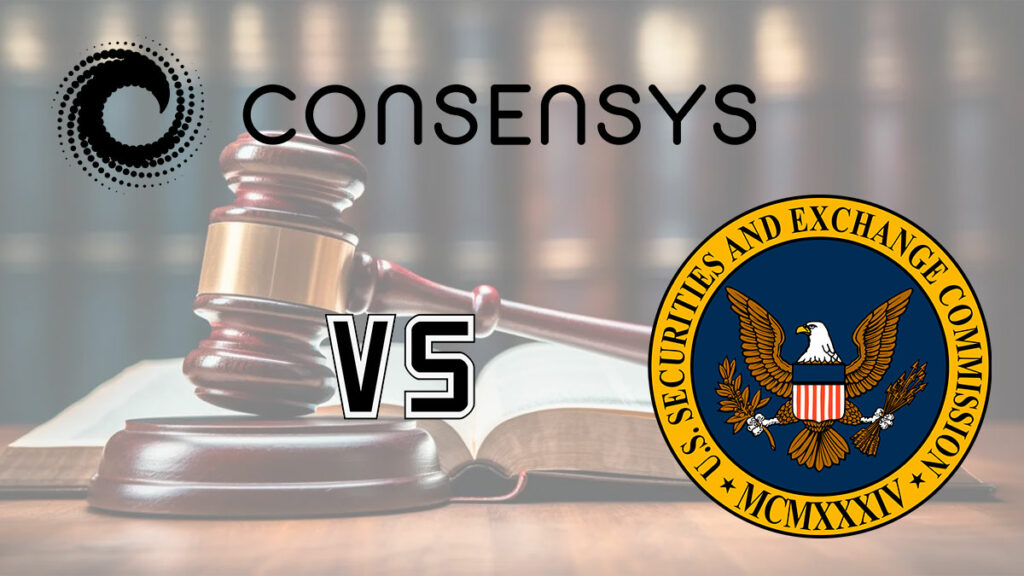TL;DR
- ConsenSys Lawsuit Against SEC: ConsenSys has filed a lawsuit against the U.S. Securities and Exchange Commission (SEC), challenging the SEC’s authority over Ethereum and its native currency, ETH. They argue that Ethereum should not be classified as a security, as it would stifle innovation and infringe on the rights of Ether holders.
- MetaMask’s Role: The dispute centers around MetaMask, ConsenSys’ popular wallet, which the SEC allegedly implies is operating as an unregistered brokerage. ConsenSys denies this claim, asserting that MetaMask’s services, including swaps and staking functions, are not in violation of securities laws.
- Implications for Innovation: If Ether is regulated as a security, it could derail the technological evolution of the U.S. blockchain industry, potentially causing a “chilling winter” for innovation and significantly impacting the value of Ether.
ConsenSys has filed a lawsuit against the U.S. Securities and Exchange Commission (SEC), challenging the regulatory body’s authority over Ethereum and its native currency, ETH.
Unlawful Overreach?: ConsenSys accuses the SEC of an “unlawful seizure of authority,” arguing that Ethereum should not be classified as a security. The lawsuit contends that such a classification would violate the Fifth Amendment and the Administrative Procedures Act, stifling innovation and infringing on the rights of hundreds of millions of Ether holders.
MetaMask’s Identity Crisis: At the heart of the dispute is MetaMask, ConsenSys’ popular wallet, which the SEC allegedly implies is operating as an unregistered brokerage. ConsenSys vehemently denies this claim, asserting that MetaMask’s services, including swaps and staking functions, are not in violation of securities laws.
A Chilling Effect on Innovation: The implications of the SEC’s actions are far-reaching. If Ether is regulated as a security, it could derail the technological evolution of the U.S. blockchain industry, causing a “chilling winter” for innovation and potentially decimating the value of Ether.
ConsenSys’ Fight for Ethereum’s Commodity Status

Lubin’s Stand: Joe Lubin, a co-founder of Ethereum and the head of ConsenSys has been vocal in his criticism of the SEC’s stance. He emphasizes that Ether has long been considered a commodity and that treating it as a security would not only hamper U.S. innovation but also give other countries a competitive edge in the blockchain race.
Empowering Web3: ConsenSys’ lawsuit is more than a legal battle; it’s a fight for the soul of Ethereum and the future of blockchain in the U.S. The company is determined to ensure that developers and market players can continue to build and innovate without the fear of outdated securities laws holding them back.
The Ethereum Foundation, a key player in the support of the decentralized blockchain network, found itself facing a lawsuit shortly after revealing in February that it had been contacted by an unidentified “state authority.” It was later reported by Fortune in March that the Securities and Exchange Commission (SEC) was the entity behind the inquiry.
In a related development, Uniswap, the top decentralized exchange on the Ethereum platform, declared earlier this month that it had also received a Wells Notice, indicating a likely impending enforcement action from the SEC.










